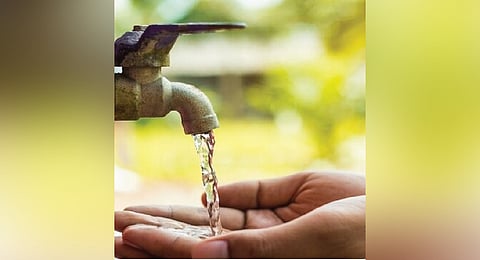

NEW DELHI: Citing substantial issues relating to non-compliance with environmental norms, the National Green Tribunal (NGT) has taken suo motu action following a news report that exposed contamination in a society’s water supply, revealing traces of the dangerous E. coli bacteria and bleaching powder.
The tribunal, led by Chairperson Justice Prakash Shrivastava, alongside judicial member Justice Arun Kumar Tyagi, and expert members Dr. A Senthil Vel and Dr. Afroz Ahmad, has issued notice to the Greater Noida Authority, the Uttar Pradesh Pollution Control Board, the Central Pollution Control Board, and the Greater Noida District Magistrate.
The bench has directed the authorities to submit their responses by the next hearing, scheduled for January 28, 2025. According to the news article that triggered the investigation, residents of a Greater Noida society began experiencing symptoms such as diarrhoea, vomiting, fever, and stomach pain, prompting health concerns among the community.
Vulnerable populations, especially children and the elderly, had been particularly affected. As per the article, the contamination is suspected to be caused by improper maintenance of the water tanks, which were reportedly not flushed correctly.
“…that the contamination could be due to various reasons including inadequate flushing the water tank properly. It is also claimed that the Greater Noida Authority supplies water up to the reservoir of group housing societies, but the internal distribution is managed by the builder or the Apartment Owners Association (AOA),” the order stated.
The article stressed that E.coli in drinking water poses a serious health threat, particularly to vulnerable groups such as children and the elderly, increasing the risk of “gastrointestinal infections, diarrhoea, and more severe health issues”.
In another recent directive which was also related to water contamination in the national capital, the NGT mandated the Delhi Jal Board (DJB) to submit a comprehensive report on the alarming groundwater contamination in Dwarka, where 180 out of 354 housing societies are grappling with unsafe drinking water.
The contamination, primarily due to elevated levels of ammonical nitrogen and total dissolved solids, has been linked to defective rainwater harvesting systems, an issue identified years ago but left unresolved.
Despite the issue being flagged nearly three years ago, corrective measures have yet to be implemented, prompting the NGT to demand an urgent and conclusive report.